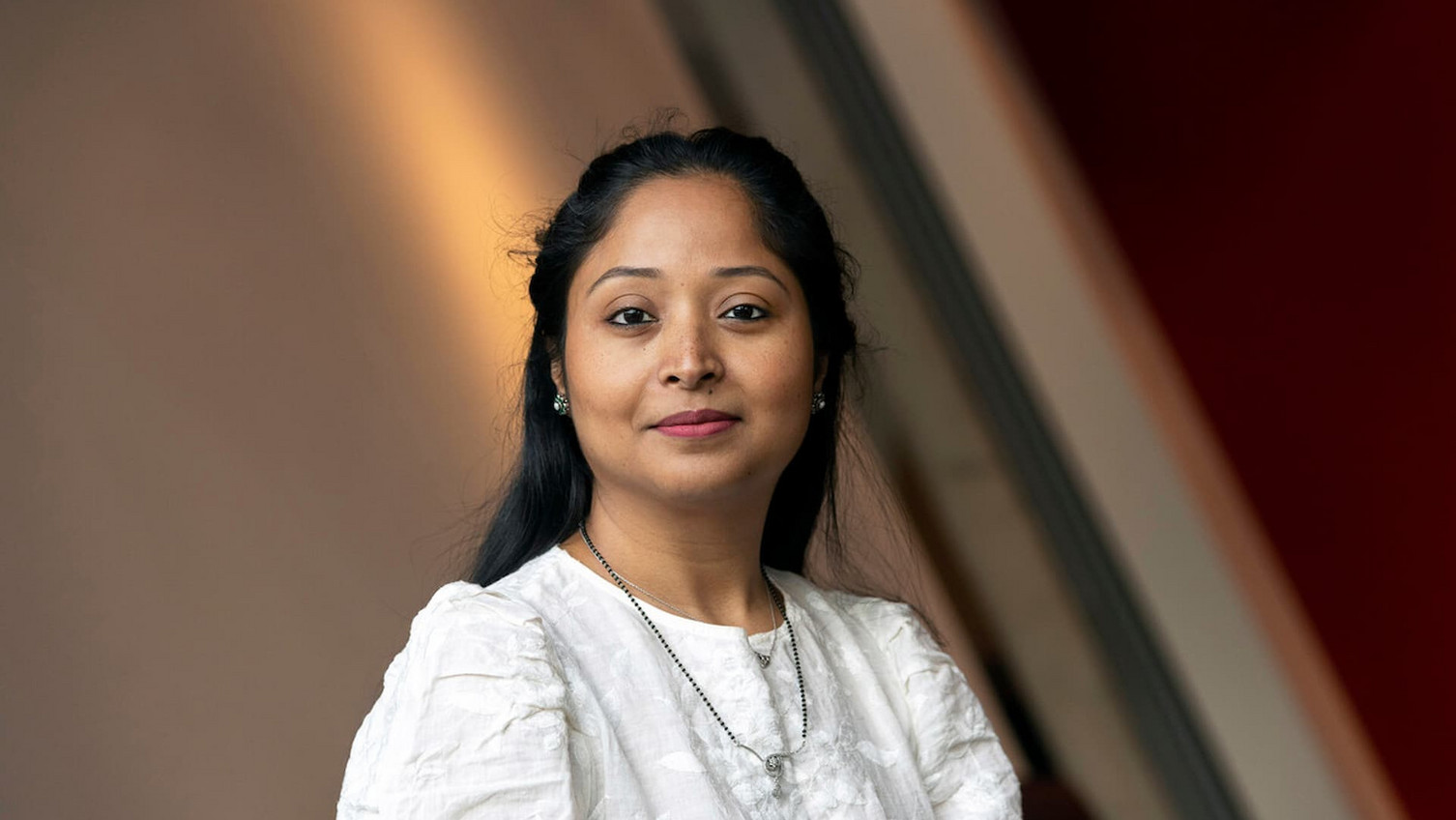LIAS Fellows in Portrait: Dr Madhurima Chowdhury
A world without passports
2023-09-18 Madhurima Chowdhury, Assistant Professor at the Department of South and Southeast Asian Studies at the University of Calcutta, investigates as one of the eleven Fellows at the new Leuphana Institute for Advanced Studies (LIAS) in Culture and Society the connection between peace and global citizenship.
In Chowdhury’s research, the term 'global citizenship' refers specifically to the concept of 'Vasudhaiva Kutumbakam' from the Indian Vedas, and means something like "the world is one family", the scholar explains. The famous Indian poet, philosopher and Nobel Prize winner Rabindranath Tagore (1861-1941) eventually revisited this idea in the 20th century: "He stood for a synthesis of Western and Eastern thought. Much like the Western European Enlightenment thinkers, he believed that education should serve above all to promote a universal humanism."
Her research question is how educational projects can promote the idea of global citizenship in the interest of peacebuilding. For this purpose Chowdhury draws on surveys, interviews, case studies and research literature. As a transfer of her scientific work, she would also like to provide a practical guide for educators, policy makers and civil society actors who are conducting peacebuilding projects and human rights education in their respective contexts.
Chowdhury hopes to have a more far-reaching impact through her contribution to the United Nations Global Schools Program. It helps schools integrate the UN's 17 Sustainable Development Goals (SDGs) into their curricula. The education programme has already been implemented in 89 countries and continues to rely on research data from all over the world. "The Global Schools Programme is particularly close to my heart," says Chowdhury, "because it helps in a very concrete way to shape a better future. Who but teachers in countries like Bangladesh or Qatar can teach young people about the social, economic and environmental sustainability goals for their own future?"
Thereby the 39-year-old looks anxiously at the latest global developments. Authoritarian regimes, populist movements, corruption, disinformation and polarisation are eroding the rule of law. "If each of us does not take responsibility again and again, we will lose democratic orders and peace will become more fragile," she says. "But again and again I see people standing up against injustice and oppression, demanding accountability and transparency, working for dialogue and collaboration, celebrating diversity and inclusion; and that gives me continued hope in difficult times."
Last but not least, the Leuphana Institute for Advanced Studies (LIAS) in Culture and Society is an encouraging academic environment where she can exchange ideas with scholars from different disciplines and regions. "LIAS is already a leading institute for critical interdisciplinary research and offers me great support for my research project. The institute helps me to develop myself, improve my analytical skills, expand networks, and increase my visibility," Madhurima Chowdhury says happily.
She is already networked with her topics in Japan and Thailand. Next on her agenda is to publish her research, hold more conferences and workshops, and disseminate her research to policy-makers and educators. She wants to continue working to ensure that her ideas find their way into practice.

